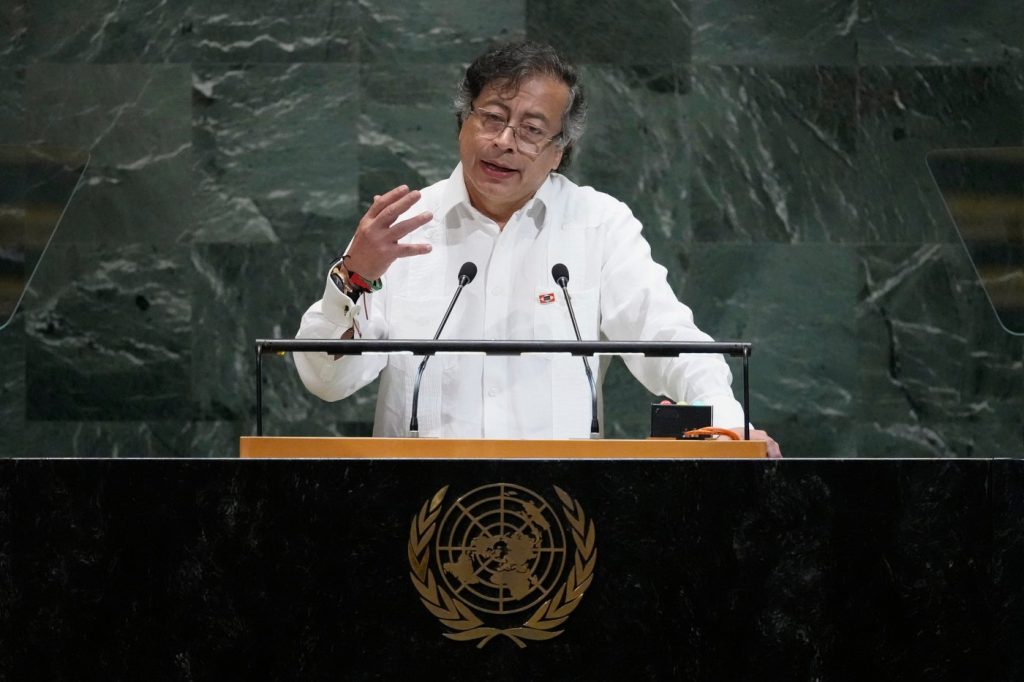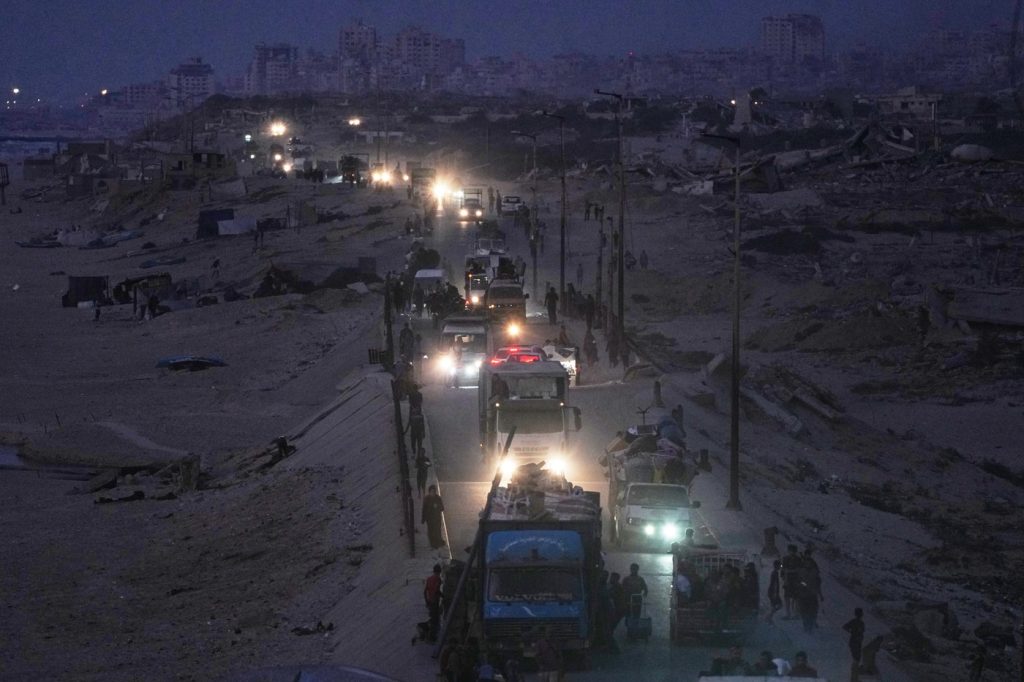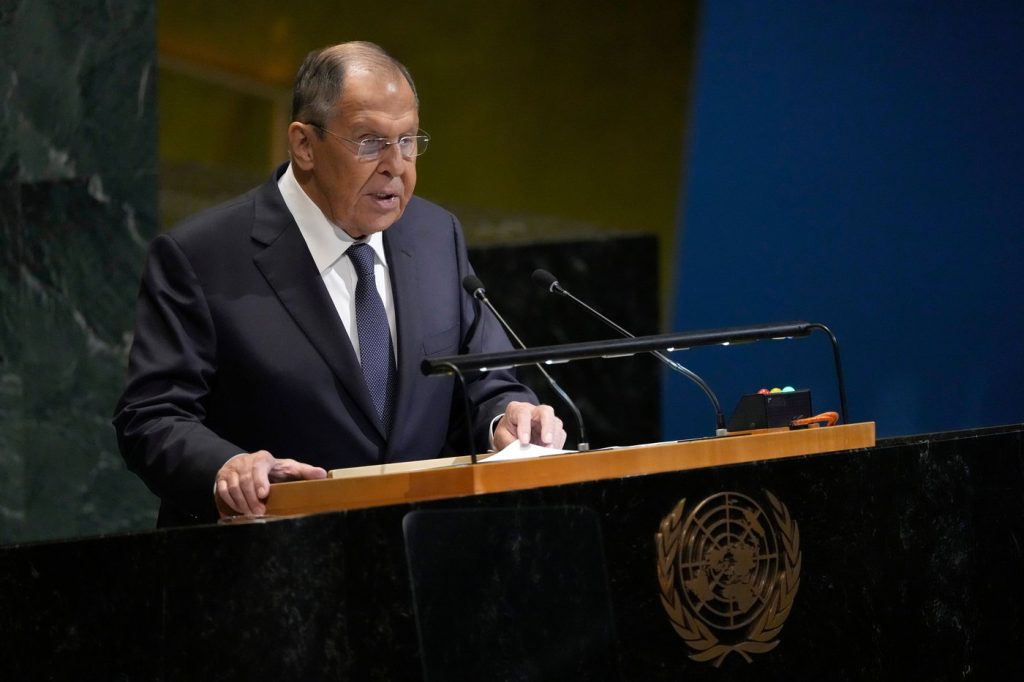WASHINGTON (AP) — Tensions have risen between the United States and Colombia following the State Department's announcement that it revoked the visa of Gustavo Petro, the Colombian president. This decision came after Petro participated in a protest held in New York, where he publicly urged U.S. soldiers to disobey orders from then-President Donald Trump. The protest coincided with his visit for the annual U.N. General Assembly.
The State Department described Petro's actions as "reckless and incendiary," emphasizing the revocation of his visa via social media. During the protest on Friday, Petro was quoted saying to U.S. soldiers, “Don’t point your rifles against humanity” and called for them to “disobey the orders of Trump.”
Petro returned to Colombia as planned on Saturday, in accordance with a decree from September 18 that addressed the delegation of powers while he was abroad. He revealed on social media that he became aware of the visa issue upon arriving back in Colombia.
The State Department did not respond when asked if the revocation would impact Petro's future visits to the U.S. Following the visa revocation, Petro took to social media to assert that “international law grants me immunity to go to the U.N.” He insisted that there should be “no reprisals for my free opinion, because I am a free person.”
Petro, Colombia’s first leftist president and a former member of a rebel group, indicated that he was unconcerned by the visa revocation as he holds European citizenship, allowing him to travel to the U.S. without needing a visa. This incident comes on the heels of Colombia severing diplomatic ties with Israel last year due to the Israel-Hamas conflict, which Petro has condemned, labeling Israel's actions in Gaza as genocide.
Historically, Colombia has been a close ally of the U.S. in Latin America, particularly in combating drug trafficking. However, Petro's relationship with the Trump administration has been fraught with conflict. During his speech at the U.N. General Assembly, Petro called for criminal investigations into Trump and other officials associated with recent U.S. military strikes in the Caribbean, which were purportedly aimed at drug traffickers.
Earlier this year, Petro faced diplomatic challenges after he opposed the use of U.S. military aircraft for deportation flights, prompting a crisis as Trump threatened higher tariffs and visa suspensions. Eventually, Colombia capitulated, agreeing to accept the flights, underscoring the delicate nature of their bilateral relations.
Furthermore, tensions escalated earlier this month when the U.S. criticized Colombia for allegedly failing to effectively collaborate on anti-narcotics efforts. Although the critique did not lead to sanctions that would have reduced U.S. assistance, it served as a significant rebuke that frustrated Petro. He highlighted that Colombia had sacrificed lives in the fight against cocaine trafficking destined for the United States.
In summary, the revocation of Gustavo Petro’s visa marks a notable deterioration in U.S.-Colombia relations, amidst broader geopolitical tensions and domestic issues related to drug trafficking and human rights. The developments are indicative of the increasingly complex dynamics between Petro’s administration and the Trump-led U.S. foreign policy agenda.












